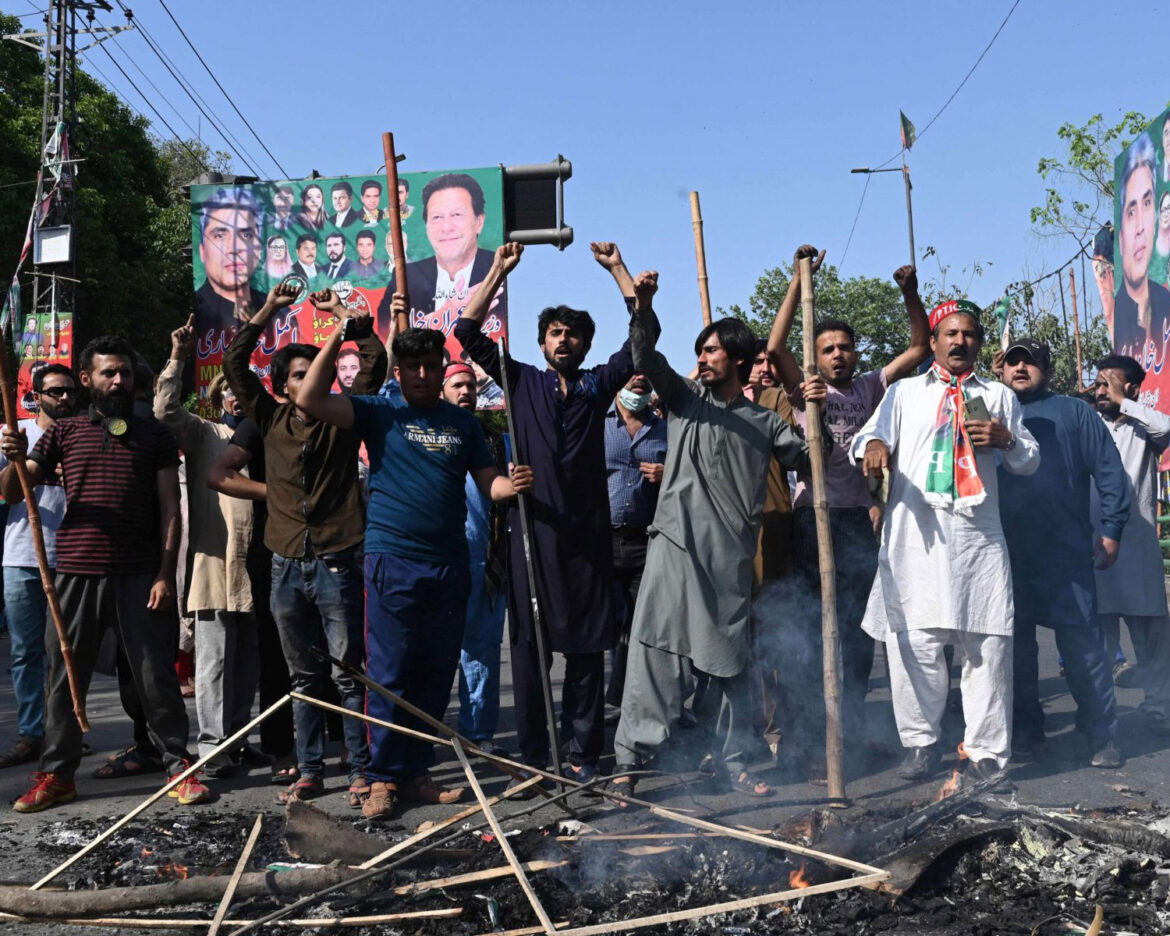A provision of “criminal conspiracy” has been included in all the cases filed against Pakistan Tehreek-e-Insaf (PTI) Chairman Imran Khan. Imran Khan, who is currently serving a three-year sentence in Attock jail after being convicted in the Toshakhana case, now faces even more serious charges related to his alleged involvement in the May 9 rampage.
Senior Superintendent of Police (SSP) Investigation Anoosh Masood made this announcement during a press briefing, shedding light on the latest developments in the ongoing investigation into the violence that erupted following the arrest of the deposed prime minister in the infamous £190 million National Crime Agency (NCA) UK settlement case on May 9.
According to Masood, nine additional sections pertaining to treason have been included in the case files related to the acts of vandalism and violence that took place on May 9. She revealed that compelling evidence of inciting mutiny and planning vandalism has been uncovered against Imran Khan.
Masood stated, “Section 120(B) of the Pakistan Penal Code, which pertains to the punishment of criminal conspiracy, has been added to all the cases connected to the May 9 incidents.”
Furthermore, she emphasized that all objections raised by the prosecution have been addressed before the submission of the case challans in the court.
This latest development follows a rigorous investigation by a special Joint Investigation Team (JIT), which was authorized to probe the May 9 rampage across the country by an anti-terrorism court (ATC). Imran Khan, who remains incarcerated in Khyber Pakhtunkhwa’s Attock jail, along with several PTI leaders, now faces a multitude of allegations related to the violence that unfolded following his arrest on May 9.
The May 9 riots tragically resulted in the deaths of at least eight people and left several others injured, prompting authorities to detain thousands of PTI workers and followers. Hundreds of party members and senior leaders were arrested for their alleged involvement in the violence and attacks on military installations.
During the protests, miscreants targeted both civil and military installations, including Jinnah House and the General Headquarters (GHQ) in Rawalpindi. This led the military to label May 9 as a “Black Day” and take action against the protesters under the Army Act.
The decision to investigate Imran Khan for his alleged role in the violence was initiated on August 18 when the police added charges of incitement to mutiny and an attempt to wage war, among other provisions, to the case diary. Subsequently, they sought permission from the anti-terrorism court to conduct a thorough investigation into the PTI chief.
In response to this request, Judge Ejaz Ahmad Buttar issued an order, granting the police the authority to proceed with their inquiry. The additional offenses now brought against the suspects include Sections 505 (Statements conducing to public mischief), 153 (Wantonly giving provocation with intent to cause a riot), 153-A (Promoting enmity between different groups, etc), 153-B (Inducing students, etc, to take part in political activity), 146 (Rioting), 131 (Abetting mutiny, or attempting to seduce a soldier, sailor, or airman from his duty), 121 (Waging or attempting to wage war or abetting the waging of war against Pakistan), 121-A (Conspiracy to commit offenses punishable by Section 121), 120-A (Definition of criminal conspiracy), 120-B (Punishment of criminal conspiracy), and 107 (Abetment of a thing).
The addition of the “criminal conspiracy” provision elevates the legal stakes in these cases, potentially leading to more severe consequences for those involved, including Imran Khan himself. As the legal proceedings unfold, the nation remains attentive to the outcomes of these high-profile cases.



